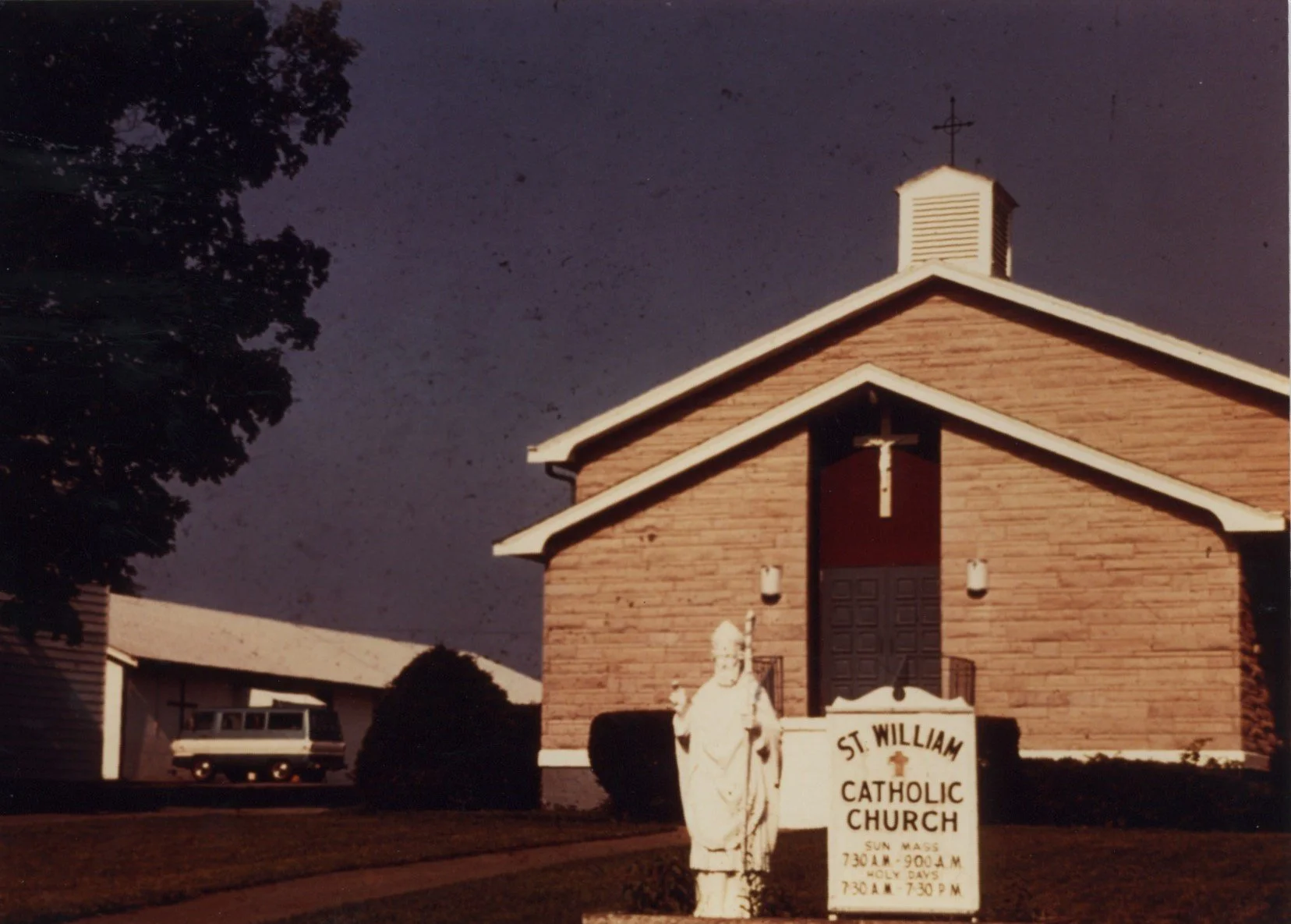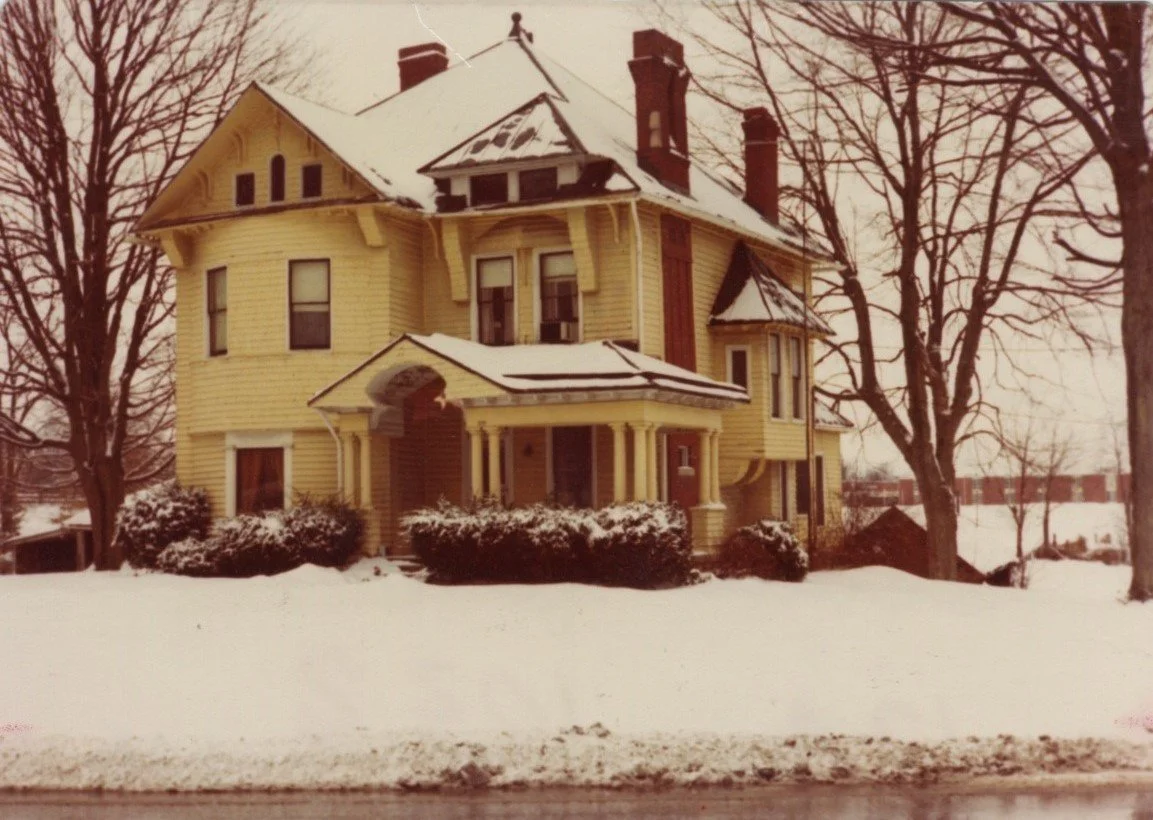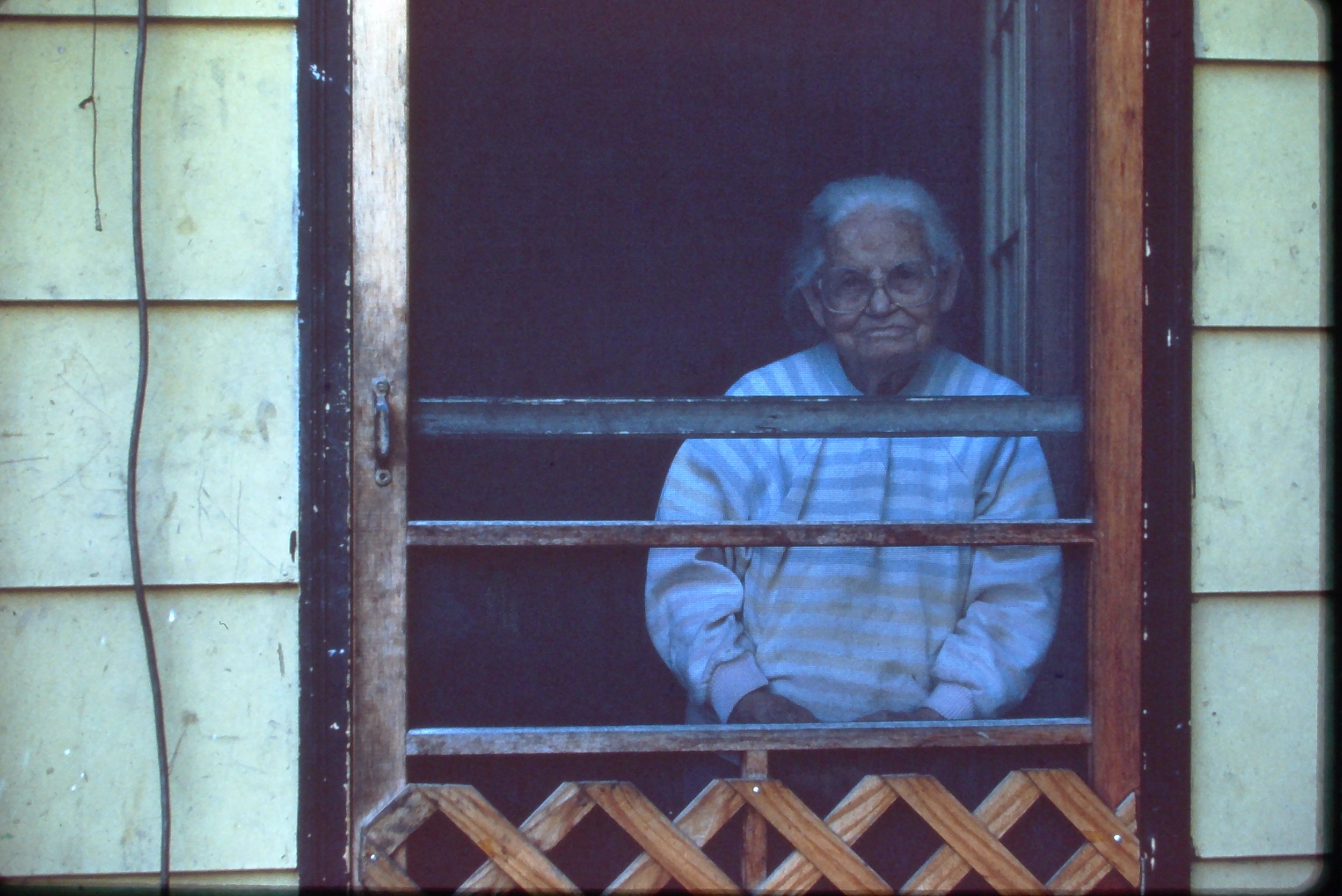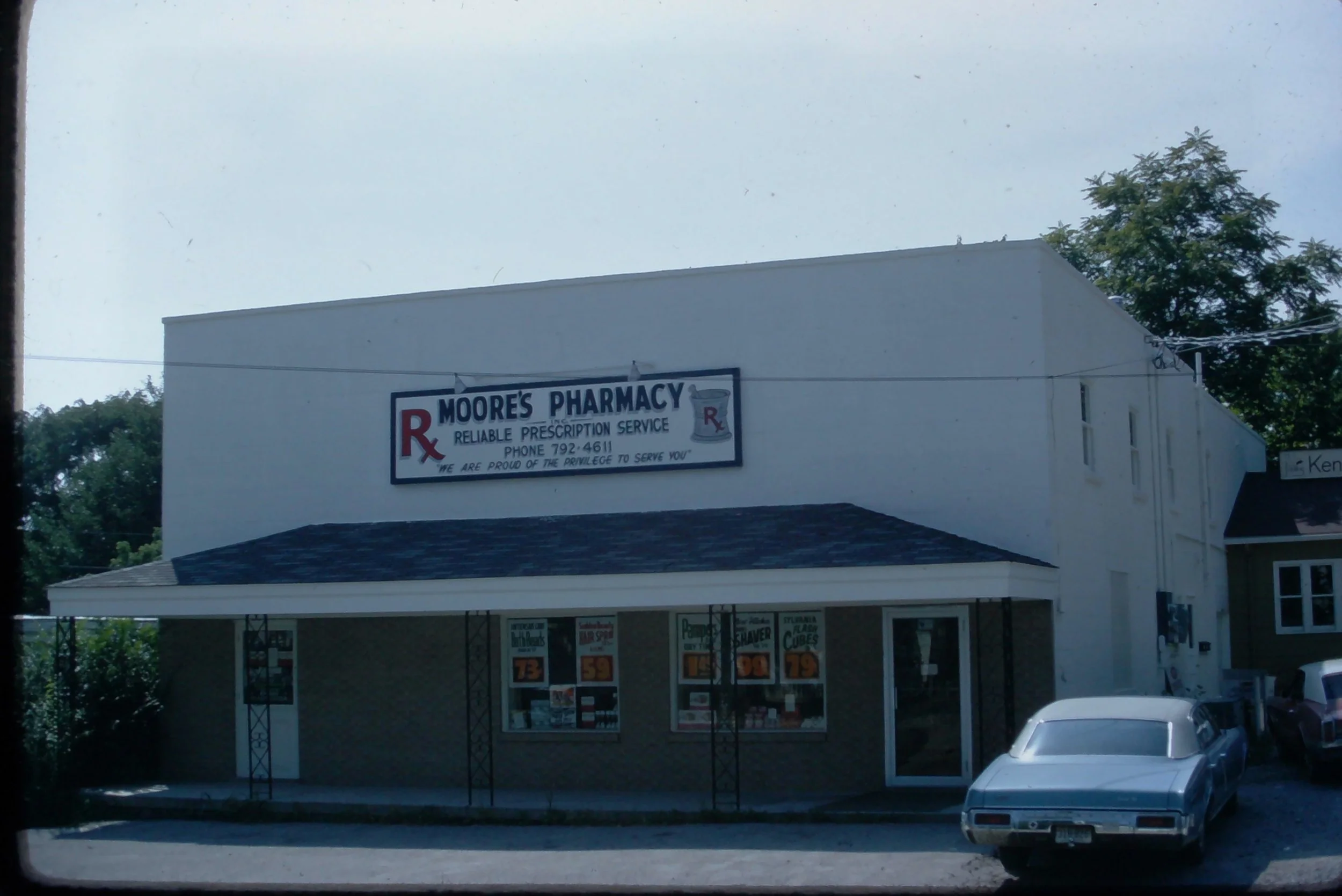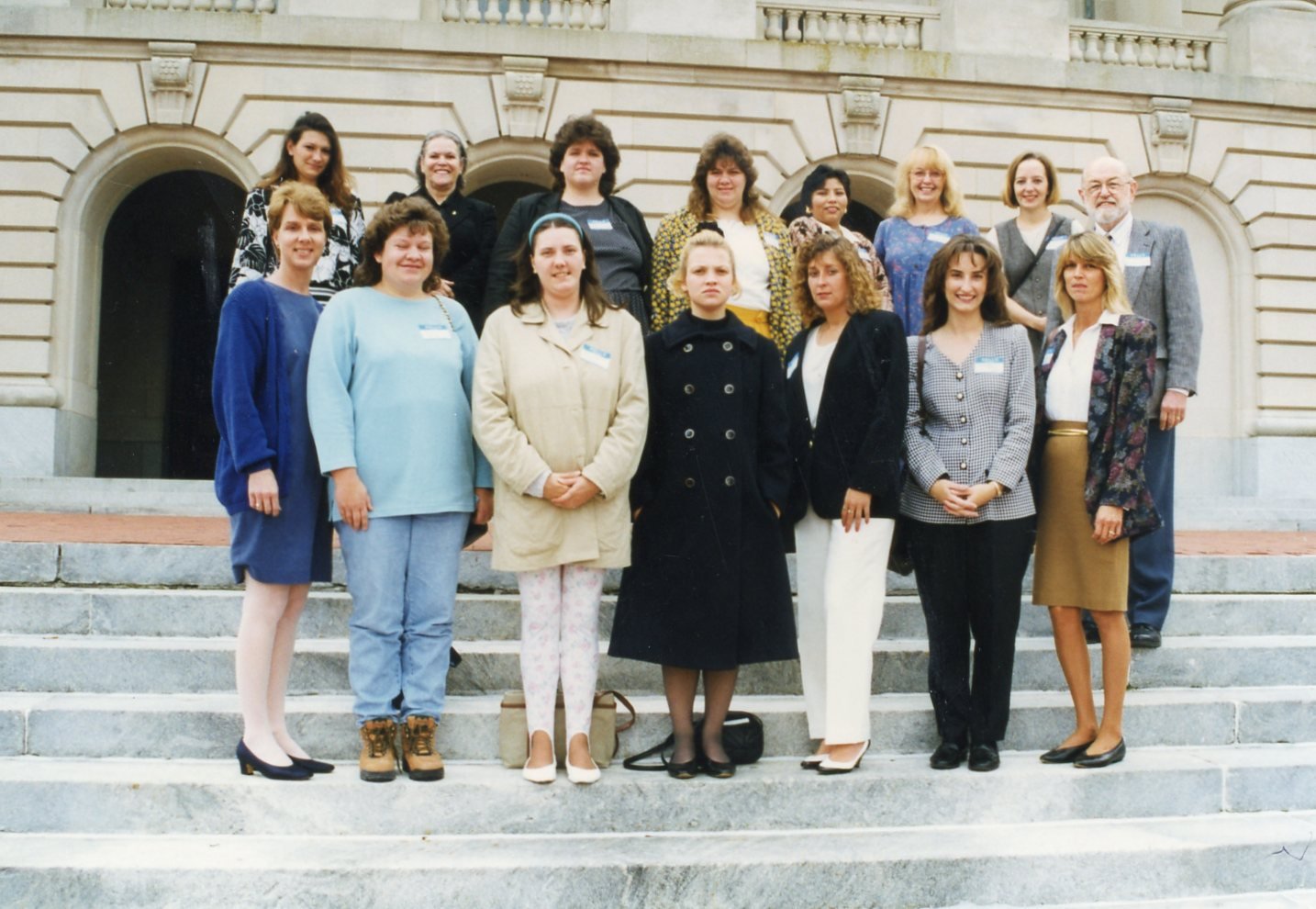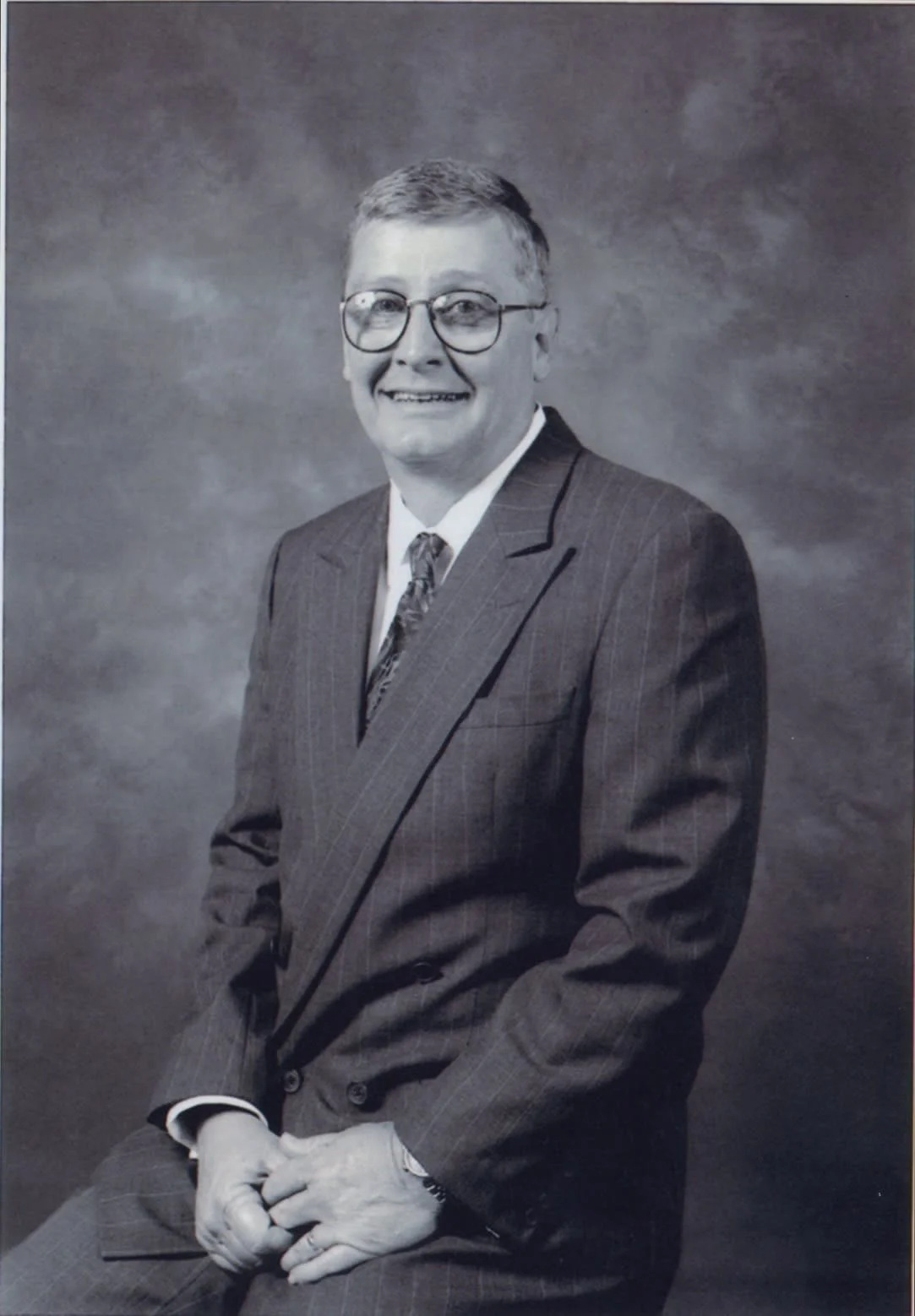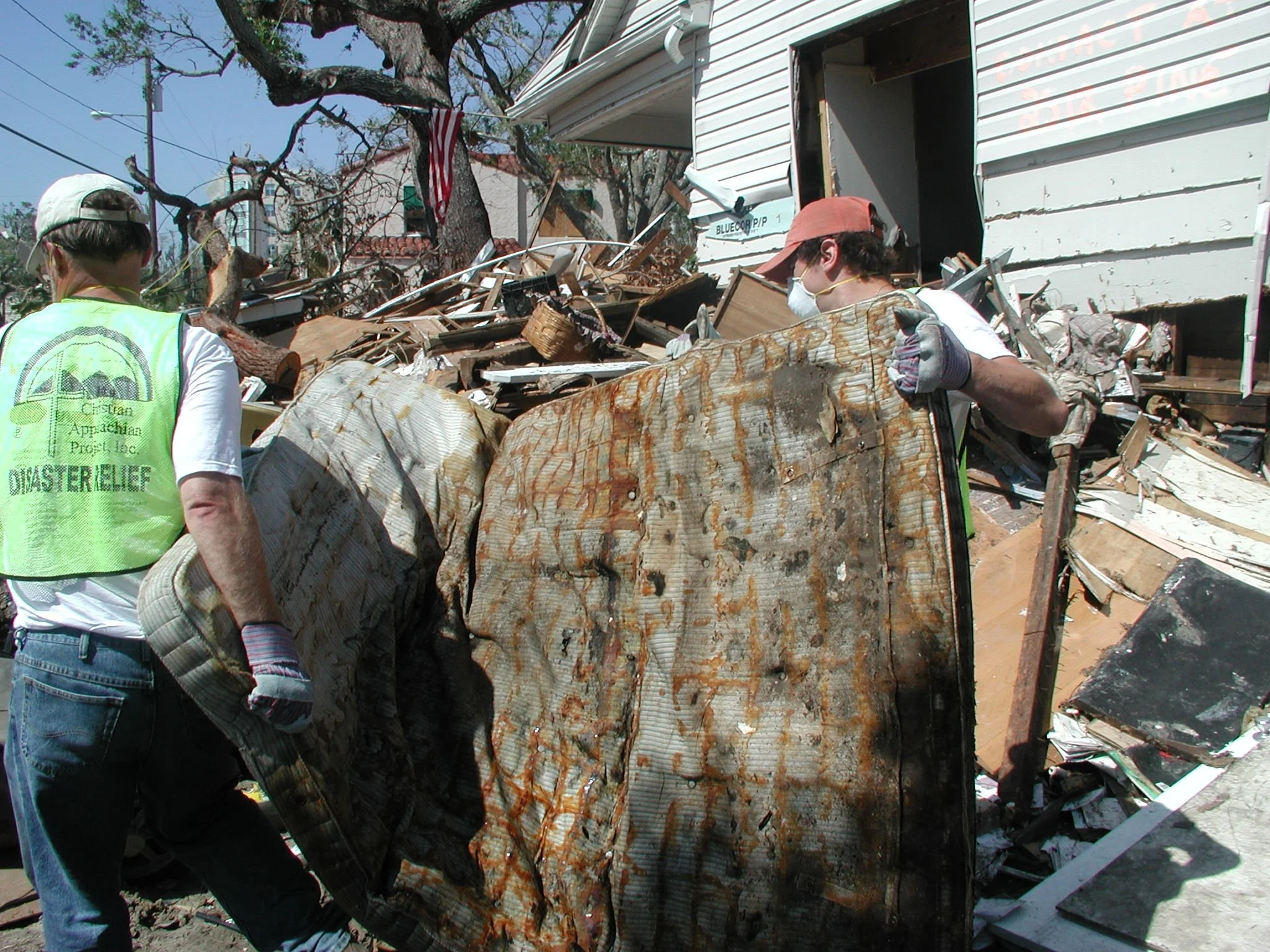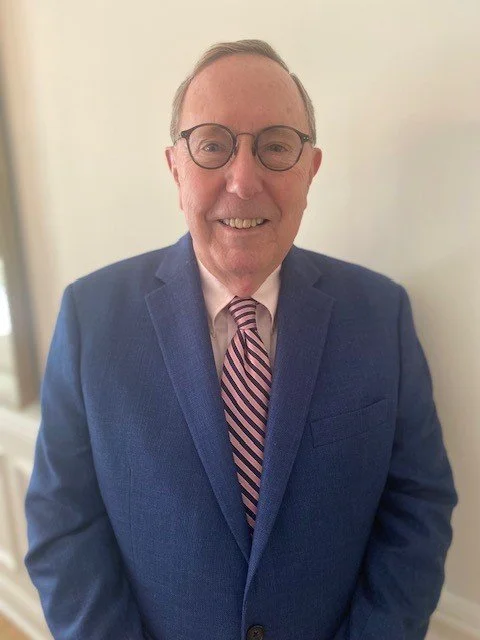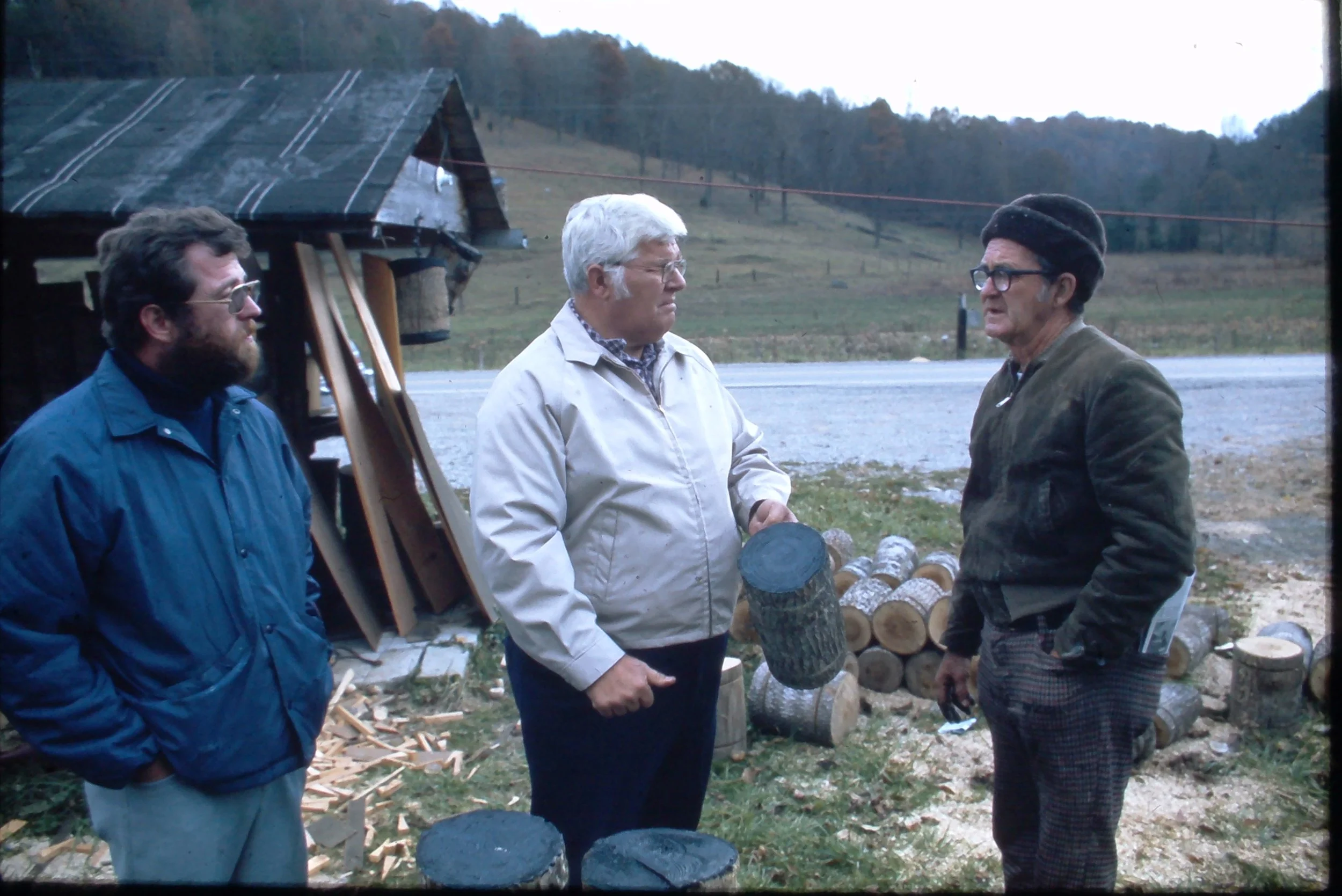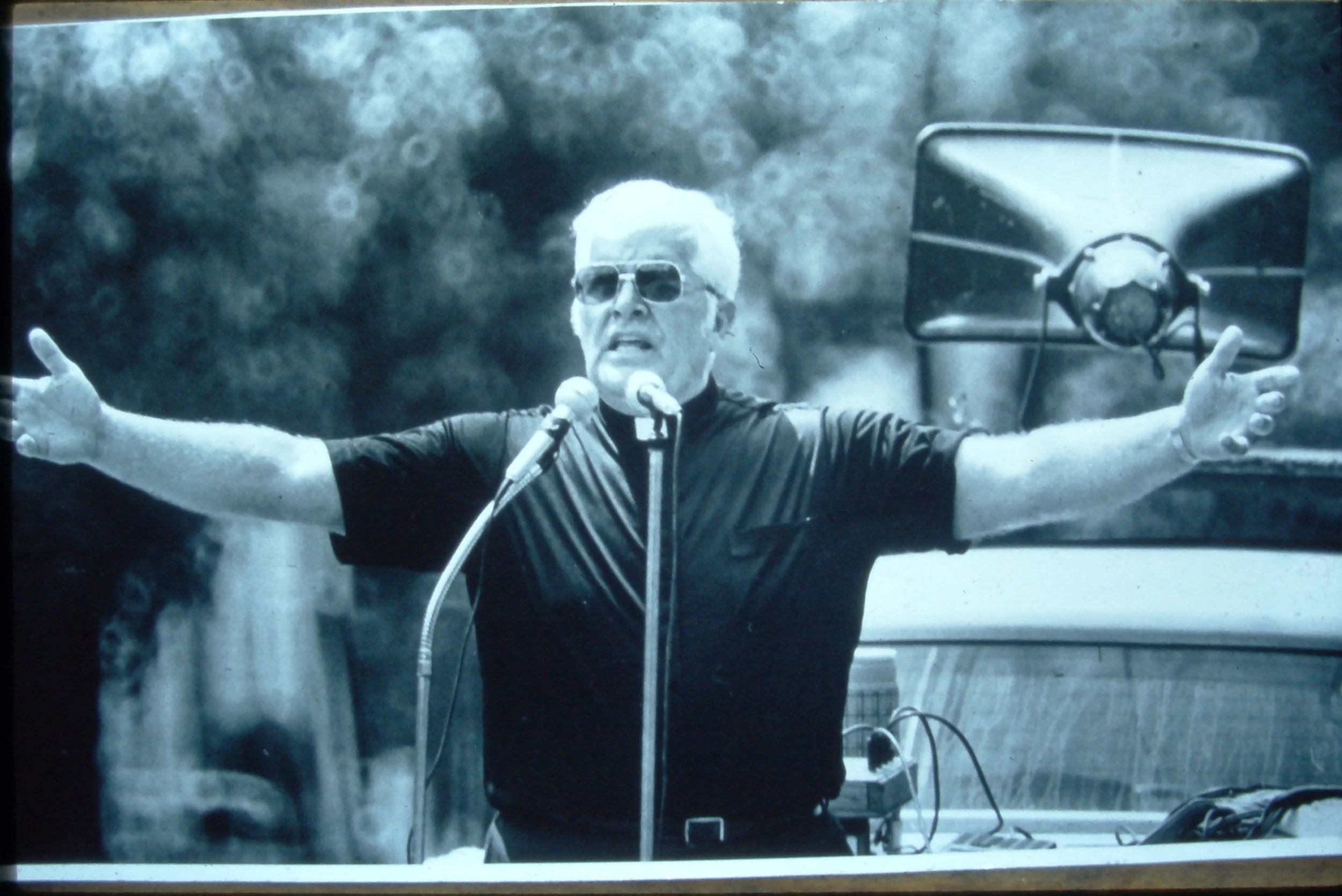
OUR HISTORY
In October 1950, Rev. Ralph W. Beiting was assigned to Appalachia. He was initially overwhelmed by the region’s poverty and the physical needs of his new parishioners. He made frequent trips to his hometown to gather donations to distribute. He knew that these small loads were not enough. Something needed to be done to address the root causes of poverty instead. He formalized Christian Appalachian Project (CAP) in 1964 to help meet the basic needs of children, their families, seniors, and individuals with disabilities.
EXPLORE OUR LEGACY
-
![]()
1958
#fhtogglels/READ MORE/CLOSE/ib
The very first CAP program was Cliffview Lodge (Garrard County), which hosted the first day camps for boys. Six campers came that first summer. In 1957, Rev. Ralph W. Beiting and his associate pastor, Rev. Herman Kamlage, pooled their small stipends and bought land on Herrington Lake. The outreach was racially integrated—unusual during the period.
-
![]()
1963
#fhtogglels/READ MORE/CLOSE/ib
An old house on the property of St. William Catholic Church in Lancaster (Garrard County) was used for office space from 1963 to 1970, including an office for Rev. Ralph W. Beiting.
-
1963
#fhtogglels/READ MORE/CLOSE/ib
In 1963, Rev. Ralph W. Beiting purchased a dairy farm near Grey Hawk (Jackson County). The farm started with only a few hand-milked cows (donated by the Trappist Monastery at Gethsemane), a grade B dairy, a two-bent tobacco barn, and 35 acres of land with only 12 cleared. George Purcell left his job to become the first employee and first manager at CAP. He moved to Jackson County and took over the responsibilities of the farm.
-
![]()
1964
#fhtogglels/READ MORE/CLOSE/ib
Rev. Ralph W. Beiting felt the need to provide greater structure to the programs he had created to serve communities in Eastern Kentucky. By 1962, he had launched Bible schools, used clothing stores, and emergency assistance, efforts that were named the Christian Appalachian Project. The nonprofit organization was incorporated in 1964 as C.A.P. Inc. That was later amended in 1971 to become Christian Appalachian Project, Inc.
-
![]()
1964
#fhtogglels/READ MORE/CLOSE/ib
On October 7, 1950, Rev. Ralph W. Beiting was assigned as pastor of a four-county parish (Garrard, Jackson, Rockcastle, and Madison Counties). His outreach work in the community led to the creation of Christian Appalachian Project. As the founder, he became the first president and served in this role from 1964 to 1986.
-
![]()
1964
#fhtogglels/READ MORE/CLOSE/ib
Initially, this program was known as “Emergency Assistance.” These services were designed to meet basic, urgent, and sometimes dire short-term needs. The program’s name changed to “Outreach” and in 2008 changed to “Family Advocacy.” It coordinates four major components each year: Christmas Baskets, School Readiness, Small Farms and Gardens, and Women's Retreat.
-
![]()
1965
#fhtogglels/READ MORE/CLOSE/ib
Attic stores have been a central part of CAP's programming. Clothes, household items, and toys were originally given away, but then CAP began to charge a modest amount which could be used to support other programs. The stores also provided clothing and household goods to people impacted by natural disasters or emergencies. The first Attic was started informally in Berea (Madison County) in 1957. It opened formally in 1965 as one of CAP’s first official programs.
-
![]()
1967
#fhtogglels/READ MORE/CLOSE/ib
In 1964, land was purchased at Sand Lick (Jackson County) for a farming enterprise. Camp AJ youth camp started with day camps in 1967 and transitioned to overnight camps in 1970. Camp was open for six weeks with approximately 50 to 75 children per week. It had a small lake for fishing, swimming, and canoeing.
-
![]()
1970
#fhtogglels/READ MORE/CLOSE/ib
CAP purchased a residence on Lexington Street in Lancaster (Garrard County), which was converted to office space, also simply known as the “Yellow House.” This was the first CAP headquarters. Rev. Ralph W. Beiting continued with his office at St. William Catholic Church across the street, and other CAP leaders had offices at the Yellow House. There was a credit union on the first floor and volunteer groups stayed upstairs. The upstairs eventually became the money counting room for fundraising efforts.
-
![]()
1972
#fhtogglels/READ MORE/CLOSE/ib
CAP Child and Family Development Center was the first child development center at CAP. It began as a preschool for ages 3-5 in the basement of St. Clare Catholic Church in Berea (Madison County).
-
1972
#fhtogglels/READ MORE/CLOSE/ib
The goal of the Elderly Services program was to provide services which reduce isolation and improve the quality of life for seniors. Services included home visitation, medical transportation, group activities, errands to grocery stores, as well as any assistance needed in the home: chores, cleaning, deliveries, mail, phone calls, prayer, crafts, reading, and respite care.
-
![]()
1975
#fhtogglels/READ MORE/CLOSE/ib
Staying true to Rev. Ralph W. Beiting’s vision to assist families whose needs exceeded their resources, CAP operated group homes for an array of special needs: teen mothers, troubled youth, “medically fragile” children, as well as children and adults with disabilities. One program, started in 1975 on a farm at Camp Nelson, taught young men a trade and provided an opportunity to earn a high school equivalency diploma. The main objective was to prepare the young men to move out into society and succeed on their own. Another program began in 1980 to house boys ages 13-15 who were sent to the program by the courts as juvenile offenders.
-
![]()
1975
#fhtogglels/READ MORE/CLOSE/ib
The Sunshine Center opened in January 1975 in an eight-room house, previously used as a convent and elementary school. In 1992, the center began an infant/toddler home-based program. In 2003, the center transitioned to the Garrard County Board of Education, Kentucky River Foothills Head Start Program. CAP programs transitioned out of the county when the Appalachian Regional Commission reclassified Garrard County as no longer on its list of Distressed Counties.
-
![]()
1975
#fhtogglels/READ MORE/CLOSE/ib
In 1975, CAP began providing residential, emergency shelter services. Originally the shelters served victims of abuse, runaways, transients, respite services for those with disabilities, abandoned children, and others who were homeless. Eventually these evolved into shelters for victims of domestic violence and a transitional shelter for those not in immediate need of domestic violence services.
-
![]()
1977
#fhtogglels/READ MORE/CLOSE/ib
The Cowden Manufacturing Company sold an unoccupied Lancaster warehouse to CAP for a reduced price. The Attic Store, Lancaster Mail Service, Kentucky Valley Printing Press Operation, and CAP's offices moved into the building on Crab Orchard Road in Lancaster (Garrard County). This became CAP’s second headquarters.
-
![]()
1977
#fhtogglels/READ MORE/CLOSE/ib
The Christmas Baskets program officially began in 1977, although Rev. Ralph W. Beiting had provided Christmas Baskets to families in Appalachia since 1950. Originally, the program directly served Garrard, Lincoln, Pulaski, Casey, and Rockcastle Counties and indirectly assisted other Appalachian groups through a grant program. Christmas distributions became a component of the Family Advocacy program, serving families and seniors in CAP’s primary service counties. In 2013, Family Advocacy added “Christmas Stores” in each region so families could choose their own Christmas gifts.
-
![]()
1977-1978
#fhtogglels/READ MORE/CLOSE/ib
Home Repair was originally part of Physical Support Services and became a part of Human Services around 1990. The name changed to Housing in 2000 and back to Home Repair in 2022. Housing/Home Repair crews focus on making homes safe, warm, and dry. Through the years, as funds have been available, CAP has also constructed new homes. CAP's Housing/Home Repair programs have offered home ownership classes, assistance with home loans, weatherization assistance, and have served as a key part of Disaster Relief efforts. The first Home Repair crew came together after the big snow of 1978 and is now one of CAP's largest programs when it comes to budget and personnel.
-
![]()
1979
#fhtogglels/READ MORE/CLOSE/ib
Attitudes and language regarding people with disabilities have changed dramatically through the years, as has CAP programming. Since the late 1970s, CAP has provided residential facilities, camp experiences, work training, advocacy training, residential respite, and in-home respite service for people with disabilities and their families.
-
![]()
1980
#fhtogglels/READ MORE/CLOSE/ib
CAPrice (Christian Appalachian Project Resources for Independency in Community and Employment) started in 1980 and focused on older teens and adults with disabilities in Pulaski County. The focus shifted to “supported employment” in 1988, helping people with disabilities gain independent living skills in Stanford (Lincoln County) and Somerset (Pulaski County).
-
![]()
1980
#fhtogglels/READ MORE/CLOSE/ib
The Gardens and Seeds program began in Garrard, Lincoln, and Rockcastle Counties through the Kentucky River Foothills Development Fund (KRFDF) with CAP providing advice and assistance. Due to budget cutbacks in 1981, KRFDF turned the program to CAP completely. The program provided seed, fertilizer, canning jars, and other necessary gardening items. The overall goal was to help low-income families supplement their food supply while building relationships within the community.
-
![]()
1980
#fhtogglels/READ MORE/CLOSE/ib
CAP’s domestic violence shelters eventually provided caseworker services. This included help with housing, employment, education, counseling, and advocacy. These shelters became part of the Kentucky Domestic Violence Association (now Kentucky Coalition Against Domestic Violence), a network of 15 government-supported shelters across the state and provided community education and court advocacy for victims of domestic violence through multi-county regions. Bethany House serves the 10-county Lake Cumberland Area Development District (ADD), Family Life Abuse Center (now CVDVS) serves the 8-county Cumberland Valley ADD, and Big Sandy Family Abuse Center (later Sandy Valley Abuse Center and now Turning Point) serves the 5-county Big Sandy ADD.
-
![]()
1981
#fhtogglels/READ MORE/CLOSE/ib
From 1981 to 2009 in Rockcastle County, CAP met a variety of adult education needs, including General Equivalency Diploma (GED) classes and testing, military entrance tutoring (ASVAB), computer literacy, and job readiness. Instruction was given in group and individual settings at CAP's educational centers as well as in/at homes as “School on Wheels,” which began in order to reach more adults in need of basic education.
-
![]()
1982
#fhtogglels/READ MORE/CLOSE/ib
Emmaus opened as a residential home for seniors in Berea (Madison County) in 1982. It was not a licensed nursing home but provided a place for up to 16 seniors who could not live alone. A contract for services between Berea Hospital and CAP was written stating that direct nursing care to participants and services to staff would be provided, CAP began looking at moving away from long-term residential care to short-term residential care, and the center closed in January 1997.
-
![]()
1985
#fhtogglels/READ MORE/CLOSE/ib
Rural Appalachia is a difficult place for adolescents, and the time between school and supper can be a dangerous time if there is nothing constructive for young people to do. In 1985 CAP began operating teen centers that offered young people a safe place to come together, to play, to pray, to study, and to receive a nutritious snack. These programs were in several counties in the 80s and 90s.
-
![]()
1985
#fhtogglels/READ MORE/CLOSE/ib
In 1985, the Rainbow Respite Care Home was established to serve the needs of families of children with disabilities. It operated one weekend a month, then part-time during the summers of 1986 and 1987, and opened full-time in 1988. In-Home Respite began in 2013 under the auspices of the Elderly Program. Those caring for family members with disabilities, Alzheimer's, or other debilitating conditions were provided with up to 12 hours of respite services per month. The respite caseworker helped in many ways, by bathing, feeding, reading, or visiting with the homebound person.
-
![]()
1986
#fhtogglels/READ MORE/CLOSE/ib
In 1986, Bill Begley, vice president of development, received a call from a friend with a donation of 29 tractor trailer loads of children’s books. Begley, with the help of Mike McLaughlin, managed to acquire an unbudgeted $50,000 from CAP’s Board of Directors to find storage. Charlie Deaton became the first director of Operation Sharing in Lancaster (Garrard County), which is now CAP’s largest and farthest-reaching program. There are warehouses in Paintsville (Johnson County) and Corbin (Whitley, Knox, and Laurel Counties), and numerous partnerships that served more than 1,400 nonprofits.
-
![]()
1986
#fhtogglels/READ MORE/CLOSE/ib
Since its inception, counseling services at CAP have been provided by professionally licensed counselors, providing individual, family, and group counseling for adults and children. Educational services have targeted issues such as stress, substance abuse, anger management, domestic violence, depression, and overall emotional health. In 1986, Family Life Counseling Services began providing general counseling services, consultations, and family life education for the public, various CAP programs, and CAP employees and volunteers. The primary goal was to serve people who could not afford the existing counseling services in the area.
-
![]()
1986
#fhtogglels/READ MORE/CLOSE/ib
In 1986, Mike McLaughlin became CAP’s second president. He joined CAP 12 years earlier as personnel director, later becoming vice president and executive vice-president. In 1995, he stepped down and finished his CAP career as the director of Operation Sharing for 5 years.
-
![]()
1986
#fhtogglels/READ MORE/Close/ib
Founded in 1953, Camp Shawnee was a Boy Scout Camp in Floyd County. The Boy Scouts relinquished the property and CAP began to lease the camp from the Corp of Engineers in 1985. CAP’s first, short summer camp was held at Camp Shawnee in 1986.
-
![]()
1987
#fhtogglels/READ MORE/Close/ib
In 1987, the Eagle Child Development Center opened in Parkers Lake (McCreary County) next to the Eagle Elementary School after the community expressed the need for a local preschool. The center was first housed in a doublewide trailer next to the Eagle Elementary School. In 2005, the Eagle Elementary School closed due to consolidation of schools. The school board voted unanimously to give CAP the school property to operate as a Community Center. Soon after, CAP moved all of its McCreary programming from Whitley City to the Eagle campus (Adult Education, Elderly Services, Housing, Family Advocacy) and began the SPARK after school program. At one point Eagle CFDC collaborated with Save the Children and its infant-toddler “Early Steps to School Success” program.
-
![]()
1992
#fhtogglels/READ MORE/Close/ib
Rejoice Respite began in 1992 and provided in-home respite care for families of individuals with disabilities. A generous donation allowed for the building of a residential facility on the Hager Hill campus in 2009 (Johnson County) and Rejoice Respite (in-home) became the Jean White Respite Center (residential). In-home respite programming re-started in 2013 and continues today under the auspices of Elderly Services.
-
1994
#fhtogglels/READ MORE/Close/ib
In 1994, Prescription Assistance began helping participants who were unable to pay for their medication. A caseworker helped find sources (such as low-income programs offered by pharmaceutical companies) and completed paperwork necessary for participants to obtain free or low-cost medicine. After the Affordable Care Act (Obamacare) was passed in 2010, demand for these services dropped precipitously.
-
![]()
1996
#fhtogglels/READ MORE/Close/ib
In 1996, JobStart began in Mount Vernon (Rockcastle County) as a direct response to the Welfare Reform Act. The goal of the intensive 12-week course was to help people with little or no job experience develop personal and work skills that would help them to succeed in the workplace.
-
![]()
1997
#fhtogglels/READ MORE/Close/ib
In 1997, Mike Sanders became CAP’s third president. During his early tenure with CAP, he had a hand in all the work there was to be done, not just the policy or decision-making jobs. He said he hoped his legacy as president of CAP was that the organization would continue to move in the direction of emphasizing family, of helping families grow and stay together. He served in this role until his death in 2003. Jerry O’Daniel, CAP’s Board of Directors chair, served as interim president.
-
![]()
2003
#fhtogglels/READ MORE/Close/ib
On October 20, 2003, Bill Mills became the fourth president of CAP which had nearly 300 employees serving thousands of people every year. He had several priorities: meet people where they were and help participants help themselves; ensure that the basic needs or participants were met; increase the number of CAP volunteers, especially people who lived in the area; provide employment opportunities in an area that, traditionally, had high unemployment. Mills served as CAP president until 2009. Randy Beckham, served as interim president.
-
2004
#fhtogglels/READ MORE/Close/ib
Disasters disproportionately affect people living in poverty, particularly within the Appalachian region. Extreme geographic isolation, lack of adequate response crews and facilities, and poor roads increase the impact of any emergency. In 2004 CAP’s Operation Sharing program developed “Operation Relief” to quickly move essential items to areas following flooding in Eastern Kentucky. CAP saw the need for a more permanent solution. The Disaster Relief program was created to provide immediate assistance to Appalachian communities suffering from floods, winter storms, tornadoes, and other major catastrophes. CAP’s disaster relief and recovery efforts focus on property cleanup, home repair, and distribution of emergency supplies. In 2005, CAP joined other agencies in response to Hurricane Katrina and served Appalachian counties in Mississippi.
-
![]()
2007
#fhtogglels/READ MORE/Close/ib
In 2007, Grateful Bread Food Pantry was opened in Mount Vernon (Rockcastle County). Residents meeting income guidelines are eligible to receive food monthly. The program also distributes USDA commodities to the seniors and weekend food backpacks through a partnership with local schools. The program moved from the Williams Street location to Highway 25 in 2012. Grateful Bread moved into a larger facility in 2024.
-
![]()
2008
#fhtogglels/READ MORE/Close/ib
In 2008, Grateful Threadz Thrift Store opened in Mount Vernon (Rockcastle County) in the long tradition of the Attic stores providing clothes, household items, and toys for a modest price. Threadz also provides clothing and household goods to people impacted by natural disasters or emergencies.
-
![]()
2008
#fhtogglels/READ MORE/Close/ib
Elderly Housing began in 2008 in Martin County to prioritize the more urgent weatherization and accessibility needs of seniors and individuals with disabilities. Elderly Housing, now Elderly Home Repair, is a component of the Elderly Services program in Sandy Valley.
-
![]()
2009
#fhtogglels/READ MORE/Close/ib
In June 2009, Randy Beckham, vice president of administration, became CAP’s second interim president following the resignation of Bill Mills. He served in this role for nine months while the Board worked to find a permanent president.
His priority during his tenure was to keep the organization stable and to create a plan to help the new president reduce the program creep that had occurred over several years. Guy Adams was hired as CAP’s fifth president in early 2010. Beckham retired from CAP in 2017.
-
![]()
2009
#fhtogglels/READ MORE/Close/ib
In 2009, the Hager Hill property (Johnson County) became CAP's third headquarters. In 2016, the state transportation cabinet condemned the Hager Hill property to reroute and make improvements on Highway 321.
-
![]()
2010
#fhtogglels/READ MORE/Close/ib
Guy Adams is the fifth president/CEO of CAP, the nation’s largest human services organization that focuses exclusively on the Appalachian region. He has led CAP since 2010 with an emphasis on implementing industry standard approaches across the organization and specifically to build an effective major gifts program to maximize philanthropic results. He plans to retire in January 2026.
-
![]()
2016
#fhtogglels/READ MORE/Close/ib
In 2016, the Hager Hill offices were moved to Ponderosa Drive in Paintsville (Johnson County) becoming CAP's fourth headquarters. At one time, Island Creek Coal Company had their offices at this location, and previously had offices at the Hager Hill location too. CAP has several programs at this facility including Youth Empowerment Services, Elderly Services, Home Repair, Family Life Counseling Services, Family Advocacy, Operation Sharing, Training and Development, Human Resources, and Information Technology.
-
![]()
2017
#fhtogglels/READ MORE/Close/ib
Lakefront Church of God had been a community partner with CAP’s Operation Sharing for more than 10 years. When a tornado destroyed the only food pantry in Magoffin County in 2012, there was an opportunity for the church to fill the void. Water Into Wine Food Pantry became one of the church’s outreach ministries. In 2017, Water Into Wine became a pantry partner expanding CAP’s food pantry network.
-
![]()
2021
#fhtogglels/READ MORE/Close/ib
Eagle Food Pantry opened for the Parkers Lake community in June 2021. The pantry was expanded the following year to a 2,760 square foot new facility which would better serve the anticipated needs of the community. The expansion included office spaces, a covered area for drive-thru service, a shopping area that provides participants the opportunity to select what they need for their families, freezer space for perishable items like meats, and a loading dock to accommodate large deliveries for the pantry. Today, the Eagle Food Pantry serves more than 400 families, or nearly 1,000 individuals.

ABOUT OUR FOUNDER
Rev. Ralph W. Beiting, a native of Newport, Kentucky, was ordained to the priesthood in June 1949 and came to Appalachia the following year. He initiated several programs to meet the needs he saw. Feeling the need to organize and direct these programs, he took great pains to come up with a name that he felt accurately represented this new organization. It was “Christian” because he wanted volunteers and participants to remember their commitment to spirituality — and because without their dedication to Christ, he felt they would not succeed; “Appalachian” because that is the region the programs served; and “Project” because it was a service-based organization for volunteers. As the founder, he served as president from 1964 to 1986.
-
![]()
“One of my favorite sayings is, ‘It is far better to light one candle, than to curse the darkness.’ Light a candle with me. If we all light just one candle, we will dispel the dark and bring a new dawn. This big family, with God’s grace, cannot possibly fail.”
CALLED TO THE MOUNTAINS
-
"The greatest challenges America faces today is poverty, and where to better tackle it head on than in Appalachia?"
PROMISES TO KEEP
-
![]()
"It has been my great dream that my work could somehow help set the people of Appalachia free again, help them rediscover the joy of dreams and the real security that comes from independence."
CALLED TO THE MOUNTAINS
-
![]()
"This pilgrimage – this dream – is too big to be contained in one lifetime. I have to find a way to keep the dream alive when I am gone."
PILGRIMAGE OF A COUNTRY PREACHER
-
“God isn’t going to look at the deed you did, as much as He will at what was in your heart when you did it.”
CALLED TO THE MOUNTAINS


